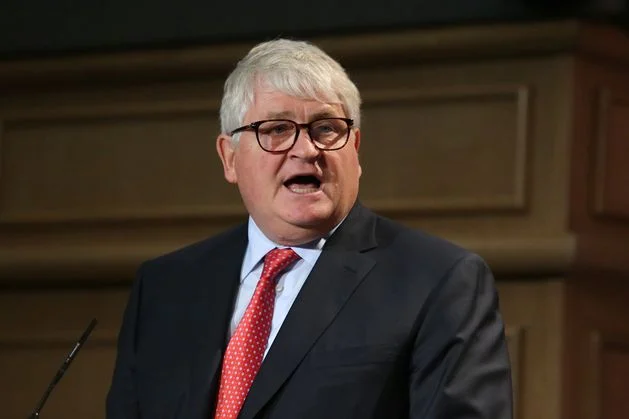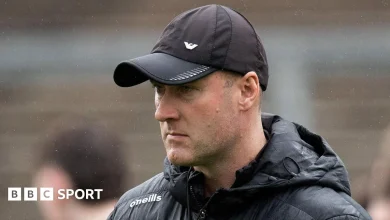‘We just cannot ignore what is happening. Hubris is our biggest threat,’ Denis O’Brien says radical action needed to save Irish economy

Ireland is at the most significant crossroads of his lifetime, he said.
He called on policymakers to push through radical political change to save the economy.
The Digicel founder heavily criticised what he called a lack of urgency in the public sector, claiming, “we live in a two-speed Ireland” where the private sector gets things done while the public sector stalls.
O’Brien also predicted that the next economic downturn was likely to happen soon, during a blistering 45-minute keynote speech at the Business Post’s Economic Outlook Forum in Dublin.
“We just cannot ignore what is happening,” he said. “We now need a combination of political leadership, accountability, a radical sense of urgency and external expertise. Hubris is our biggest threat.”
O’Brien called out Ireland’s planning laws for “severely holding the country back”, claiming three-year-long delays and judicial reviews were now the norm. He highlighted housing as the single biggest impediment to society and the economy’s future.
O’Brien listed the wider infrastructural bottlenecks harming Ireland, claiming the Dáil could pass all necessary reforms over two weeks before the end of the year. He compared this to the Examinership legislation that was quickly passed in 1989 to save the Irish beef processing industry.
“The Taoiseach and the Tánaiste need to drive this agenda forcefully on a daily and weekly basis. This is not happening now.”
Denis O’Brien
Today’s News in 90 Seconds – Tuesday, November 11
Considering how the private sector could assist in driving change, O’Brien said the late Ryanair founder Tony Ryan could have been sent in to help Government remove blockages. He believes Ryanair boss Michael O’Leary would be that person today.
”In the 1990s, there was a secondment scheme to exchange public and private sector senior management,” he added. “It was a huge success. This scheme should be reintroduced. The benefits would be enormous for both sectors.”
O’Brien lashed out at the EU for being bogged down in bureaucracy, highlighting the pace of change in China and the US.
The billionaire doesn’t believe Europe will change under the current European Commission president, Ursula von der Leyen. He said Europe would be in “safer hands for the future” under former European Central Bank president Mario Draghi and advocated implementing his European competitiveness report.
“Changes can only be brought about by new people being put in charge to create a different future,” he said.
O’Brien also pointed to Ireland’s role in facilitating a global tax system, where large corporations ‘book’ advertising or sales revenues in Ireland at the expense of countries like Kenya or Burundi, which get no sales tax, Vat or local employment benefits.
O’Brien described such tax schemes as “modern-day digital colonialism.”
“These tax practices continue to contribute to a world of gross inequality, and is the main reason why African immigrants take huge risks in dinghies to reach rich European countries.
“Our role in this tax plan also needs to be debated. We can debate both sides of the argument. If Ireland is happy to continue to facilitate these tax arrangements, then we should do something meaningful to help Africa.”




